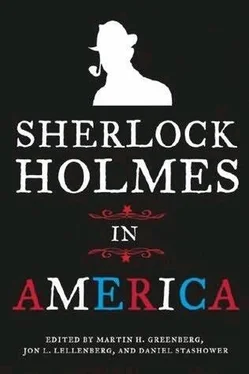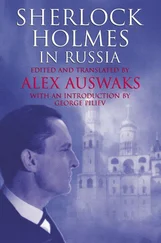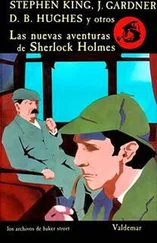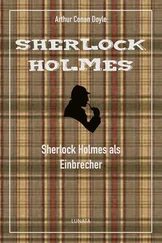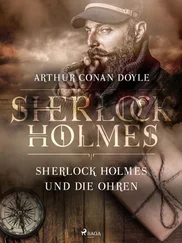“They think you are a plainclothes detective,” shouted Miss McParland over the din. “We must hurry.”
Then I understood: I was in the very heart of gangland Chicago. A thrill ran through me. After all, I had been in correspondence with Inspector Byrnes of the New York City Police Department from 1886, when the great detective’s magnum opus, Professional Criminals of America appeared, to his death four years ago. And to think that now I might be encountering in the flesh some of those whose photographs I had pored over for so long: the burglar Joseph Whalen, who went by the alias of Joe Wilson; “Jew Al,” the confidence man; and the notorious pickpocket “Aleck the Mailman.” Perhaps I would even encounter America’s own Moriarty, lurking among one of the city’s many Irish secret societies.
“In here,” said Miss McParland, grabbing my arm. She darted down some narrow service steps and into the bowels of a nearby building as the mob outside howled like banshees and continued its aerial assault.
I had expected a dank, musty basement, crawling with lice and raggedy immigrants. Instead, I found myself in a kind of dance hall. Or perhaps a saloon. “What is this place?” I managed to whisper to my comely companion.
“A blind pig,” she replied.
The place reeked of spilt beer and bloodied sawdust, where sawedoff shotguns and six-shooters were as plentiful as the rats who no doubt scuttled along the insides of the walls. A mediocre player pounded a hideously out of tune piano in a corner, while whores and secondstorey men danced with shameless abandon. On balance, however, it was no worse than the East End dives and opium dens I had often visited in the course of my detective work. “Ain’t this a swell ballumrancum?” asked a swaying tough with half an ear missing, and I replied that I was sure it was.
Miss McParland was speaking with a hard, scarred fellow behind the bar, who looked me over with what I fancied was approval. Indeed, a big smile was crossing his bluff Hibernian countenance, and he wiped his hands on his soiled apron and moved toward me.
“Abe Slaney, I presume,” I said, but my little joke was lost on him.
The force of the blow sent me reeling across the room. It was like being back in the ring with McMurdo, Bartholomew Sholto’s manservant. Had I been struck with a Penang lawyer, I could not have felt the assault more forcefully. The last thing I recall seeing was the treacherous visage of Miss Maddie McParland, smiling sweetly at me, her expression a mixture of pity and revenge, as I descended into that unexpected night.
Of the next few weeks, I have little memory. Most of the time I was kept drugged-opium, I am quite sure-and was chained to a metal cot in a back room while the gang debated about what to do with me. Occasionally, the big man who had knocked me out-they called him “the Boss”-and some other fellows would enter my room and “grill” me. Some of them argued for my speedy demise, but the Boss demurred, saying I might well be put to better use. I knew that in order to survive, I was going to have to play along, no matter what the humiliation. Besides, I was burning to know what role Miss McParland had played in all this, and what the contents of my brother’s letter to her were, which had brought me to such a pretty pass. But of her, however, I saw nothing.
What they could not know, of course, was that my long experience with cocaine and opium had rendered me resistant, if not immune, to the drugs, and thus I was able to keep my “character” in front of me at all times. I told them, over and over, that I was Jim McKenna of Liverpool- my Liverpudlian accent more than rose to the occasion-and that I could still lick any man in the room if they would only set me free.
At last, my moment came. The door to my cell opened and there stood the Boss. He entered and sat down next to me. I could smell his foetid breath. “So, it seems that you are who you say you are. We’ve checked you out six ways from Sunday with our lads in Liverpool and mister you are jake in my book. You’re a tough old bird, I’ll give ya that; then you’re more than welcome to join us and fight for our people and Mother Ireland, Mr. James McKenna.” I breathed a small sigh of relief. Mycroft had “set me up” well enough to pass the scrutiny of this lot.
“But,” the Boss continued, ominously, “if you turn out to be some dirty copper, well, buddy, you have come to the wrong place. Because we in the brotherhood know how to police our own. Sure, we’ve had many years of experience, if you catch my drift.”
Now the scales fell from my eyes-these were not just gangsters, but Fenians, one with the Irish Republican Brotherhood, and dedicated not only to Davitt and Parnell and Home Rule, but outright independence. And I, a loyal subject of His Majesty, was being forced to join them. Was this what Mycroft had in mind all along? It seemed inconceivable, but however improbable, it was the nearest thing to the truth-or at least a working hypothesis-that I had. “OK,” I said, starting to pick up the lingo.
The Boss brought his smelly face close to mine. “Will you fight for us, old man?” he breathed. “Will you fight for Eire, and freedom?”
I swallowed hard. “I will,” said I.
“Stout lad.” And with that, he unlocked my chains and told me to stand up.
What happened next was a blur. I had the sense of being rushed, my shirt ripped from my back. Then a searing pain in my back, beneath my left shoulder blade. The unmistakable scent of burning flesh filled the air with its noisome acridity.
As they released me, I dropped to my knees and then collapsed across my bed. Only had Tonga’s dart found me on the Thames could the pain have been more intense. How long I lay there in my misery, I have no idea, but it must have been several minutes. Then I gradually became conscious of soft hands, gently rubbing some healing lineament in my wound, and then a softer voice, whispering in my ear.
“How does it feel?” said Maddie McParland. She grasped my chin and turned my face toward hers. Even in my anguish, I could see the fire in her eyes, the beauty in her flushed cheeks, the passion in her touch. “Tell me, for I must know: How does it feel ?”
Buffalo, February 1913
My room at the Altamont was simple, Spartan, sufficient. A single bed. A washbasin and a chamber pot that I had to empty myself. More flophouse than Michelin, but still, it was better than Chicago, and I no longer yearned so fervidly for the tender mercies of good Martha Hudson. It was a good place for the gang to “lie low,” as they say, and, besides, Miss McParland was there.
My wound had healed, although absent a mirror I still could not see what they had done to me. The best I could manage was a dim, gas-lit reflection in a window against the darkness of Lake Erie that stretched out like a vast, frozen inland sea beyond my window. But even then, I could only make out the seared flesh, and not what lay beneath.
Lost in my ruminations, in my half-naked state, I was startled by a knock at the door. Hastily, I donned my shirt but I was too late: the door opened and there she stood. How forward these Americans are, and how little they care for propriety! I turned quickly away, still struggling with my shirt.
“It’s healing nicely,” she said, inviting herself in.
I could stand the suspense no longer. “For God’s sake, please tell me how they have marked me!” But my pleas fell upon deaf ears. Perhaps it was my distressed state, but at this moment, she looked-dare I say it?-ever more beautiful than before. And yet she was the one responsible for my condition. The heart is a strange regulator.
She fixed me with that otherworldly Celtic-blue stare, at once so foreign to our earthy, sturdy Anglo-Saxon stock and yet so beguiling.
Читать дальше
